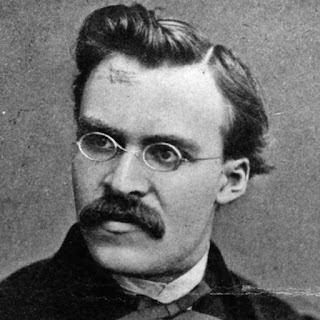Oxford's dictionary defines post-truth as an adjective denoting the circumstance that objective facts are less influential in shaping public opinion than appeals to emotion and personal belief.
Britain's Lord Hall, director-general of the BBC, warned that the world is facing "the biggest assault on truth since the 1930's." Sacks writes that according to a Pew Research Center report,
A majority of Americans now view fake news as a more serious problem than terrorism, illegal immigration, racism or sexism. Almost seven in ten say it undermines confidence in government. Fifty four percent say it damages people's confidence in one another.In other words, a majority of Americans doesn't believe that their media is telling them the "real" truth about what they report, but where there's no confidence that what we hear is true there'll surely be no trust.
Our society, Sacks argues, has arrived at the point where our skepticism about the possibility of truth is corroding trust, not just in our media but in all our institutions as well as our interpersonal relationships. This is the legacy of our postmodern age.
When "truth" becomes whatever has appeal to the listener, whatever comports with his or her own beliefs, biases, and predilections, when you have your truth and I have mine, then what basis do we have for trusting each other?
How have we come to such a predicament? Entire books have been written on that question, but perhaps the short answer is, to quote Alexander Solzhenitsyn, we have forgotten God.
The German philosopher Friedrich Nietzsche (1844-1900) foresaw the consequences of man's abandonment of God in the second half of the 19th century. He realized, long before it dawned on many of his fellow atheists, that if God does not exist then there's no objective standard for truth nor for morality.
"There is no truth, " Nietzsche declared, "there are only interpretations."
 |
| Friedrich Nietzsche (1844-1900) |
Why have morality at all when life, nature, and history are not moral? .... we godless anti-metaphysicians still take our fire, too, from the flame lit by a faith that is thousands of years old, that Christian faith which was also the faith of Plato, that God is the truth, that truth is divine.Put differently, in Nietszche's day men had rejected God but they still tried to hold on to belief in truth, especially moral truth. Nietszche saw that you can't do it. You can't have one without the other.
If you want to make moral judgments and discern truth from falsehood then you have to undergird that with a theistic worldview. If you don't want theism, you have to be willing to foresake truth, morality and trust as well.
A world that no longer believes in God will soon enough stop believing in truth, including moral truth, and when truth no longer matters trust will soon die, and when that happens, Rabbi Sacks warns, society will be well on the road to complete disintegration.